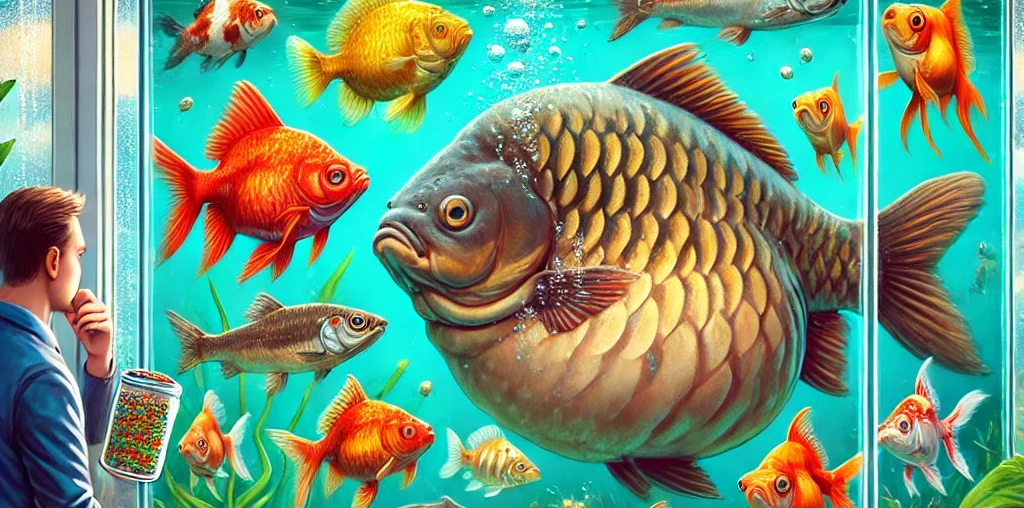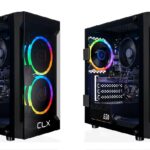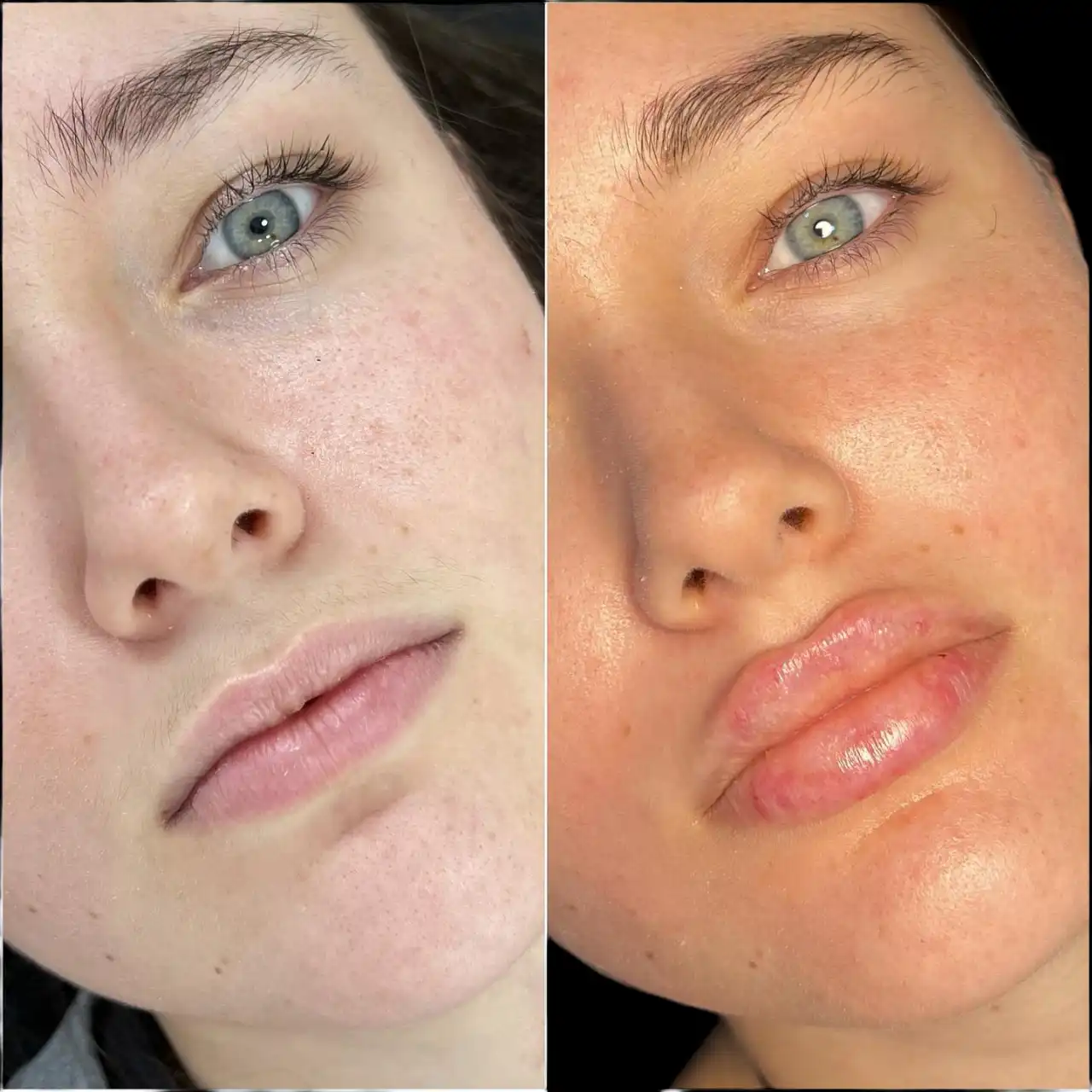Feeding your fish is one of the most enjoyable aspects of keeping an aquarium. Watching them eagerly swim to the surface for their meal is rewarding, but have you ever wondered if you’re giving them too much? Overfeeding is a common mistake among fish owners, and it can have serious consequences for your fish and the health of your aquarium.
In this guide, we’ll explore the risks of overfeeding, how to recognize the signs, and what you can do to ensure your fish get the right amount of food. Whether you have a single goldfish or a thriving community of freshwater fish, understanding proper feeding habits is crucial for maintaining a healthy aquatic environment.
The Dangers of Overfeeding Your Fish
Overfeeding your fish isn’t just about giving them too much to eat—it can have harmful effects on their health and the overall balance of your aquarium.
- Water Quality Issues
Excess food that remains uneaten starts to break down in the water, leading to an increase in ammonia and nitrate levels. This can result in cloudy water, unpleasant odors, and even toxic conditions that are harmful to your fish. - Obesity and Health Problems
Just like humans, fish can suffer from obesity if they overeat. Overfeeding can cause bloating, fatty liver disease, and digestive issues, reducing their lifespan and quality of life. - Algae Blooms
Leftover food contributes to excess nutrients in the water, which fuels algae growth. Algae can make your tank look dirty and may even compete with your fish for oxygen. - Filter Overload
Your aquarium filter works to remove waste, but excessive food increases the biological load, making it harder for the filter to maintain clean and stable water conditions.
Signs You Are Overfeeding Your Fish
Recognizing the signs of overfeeding can help you make the necessary adjustments before it impacts your fish’s health. Here are some common indicators:
- Uneaten Food in the Tank
If food is left floating or sinks to the bottom after a few minutes, you’re giving your fish more than they need. - Cloudy or Foul-Smelling Water
A murky or foul-smelling tank is often a sign of excessive organic waste caused by overfeeding. - Algae Growth
Sudden algae blooms may indicate high nutrient levels in the tank from uneaten food. - Fish Swimming Abnormally or Bloating
If your fish appear sluggish, have swollen bellies, or struggle to swim correctly, they may be suffering from overfeeding-related digestive issues. - Dirty or Clogged Filters
If you find that you’re cleaning your filter more often than usual, excess food waste could be the culprit.
How Much Should You Feed Your Fish?
The key to proper feeding is moderation. Here are some general guidelines to follow:
- Observe the 2-3 Minute Rule
Only feed your fish what they can consume in two to three minutes. Any uneaten food should be removed promptly. - Feed Small Portions
Instead of one large feeding, offer smaller portions 1-2 times per day, depending on the type of fish you have. - Consider Their Natural Diet
Different fish species have different dietary needs. Some fish prefer flakes or pellets, while others need live or frozen food. Providing the best freshwater fish food for your specific species ensures balanced nutrition. - Adjust Feeding Based on Water Temperature
In cooler temperatures, fish metabolism slows down, meaning they require less food. Adjust feeding frequency accordingly to avoid excess waste.
Best Practices for Feeding Your Fish
To keep your fish healthy and your tank clean, follow these best practices:
Use a Feeding Schedule
Establishing a consistent feeding routine helps prevent overfeeding. To avoid giving your fish too much, keep track of when and how much you feed them.
Choose the Right Type of Food
Providing the best freshwater fish food ensures your fish receive the necessary nutrients without excessive fillers that contribute to waste. Look for options with high protein content and minimal artificial additives.
Remove Uneaten Food
If any food remains after feeding, remove it with a net or siphon to maintain water quality.
Fast Your Fish Occasionally
Many aquarium fish benefit from a fasting day once a week. This allows their digestive systems to rest and helps prevent bloating and constipation.
Consider Using an Automatic Feeder
If you struggle with portion control, an automatic fish feeder can help dispense the right amount of food at scheduled times.
What to Do If You’ve Overfed Your Fish
If you suspect that you’ve been overfeeding your fish, don’t worry—it’s a common mistake, and there are steps you can take to correct it.
- Perform a Water Change
Replace 20-30% of the tank’s water to help remove excess nutrients and improve water quality. - Clean the Tank and Filter
Remove any leftover food, vacuum the substrate, and clean the filter to prevent further contamination. - Reduce Feeding Frequency
Temporarily decrease the amount of food you provide and observe how your fish respond. - Monitor Water Parameters
Use a water test kit to check ammonia, nitrite, and nitrate levels. If they’re elevated, continue with water changes and monitor your fish for signs of distress.
Final Thoughts: Keeping Your Fish Healthy
Feeding your fish the right amount is essential for their health and the overall well-being of your aquarium. While it’s tempting to give them extra food as a treat, overfeeding can lead to water quality issues, health problems, and algae growth.
By choosing the best freshwater fish food and following a proper feeding routine, you can maintain a clean, thriving tank. Remember, a little food goes a long way in keeping your aquatic pets happy and healthy!
Frequently Asked Questions (FAQs)
- How often should I feed my fish?
Most fish should be fed once or twice a day, depending on their species and dietary needs. - What happens if I accidentally overfeed my fish?
If you overfeed your fish, remove uneaten food, perform a partial water change, and monitor water parameters to prevent issues. - How do I know if I’m feeding my fish the right amount?
If your fish consume all the food within 2-3 minutes without excess floating or sinking, you’re providing the right amount. - Can overfeeding kill my fish?
Yes, overfeeding can lead to water pollution, ammonia spikes, and digestive issues that may be fatal if not addressed. - What is the best freshwater fish food to prevent overfeeding?
High-quality pellets, flakes, or freeze-dried foods that match your fish’s dietary needs are best. Avoid overusing treats and live food to maintain balance.
Conclusion: Smart Feeding for Happy Fish
Ensuring your fish get the right amount of food is a key part of responsible pet ownership. By being mindful of feeding habits, choosing high-quality food, and keeping a clean aquarium, you can create a healthy environment where your fish thrive.
For the best pet supplies, including high-quality fish food, visit Kwikpets.com, where we offer top-rated products for all your aquatic pets.
Happy fish-keeping! 🐠💙



